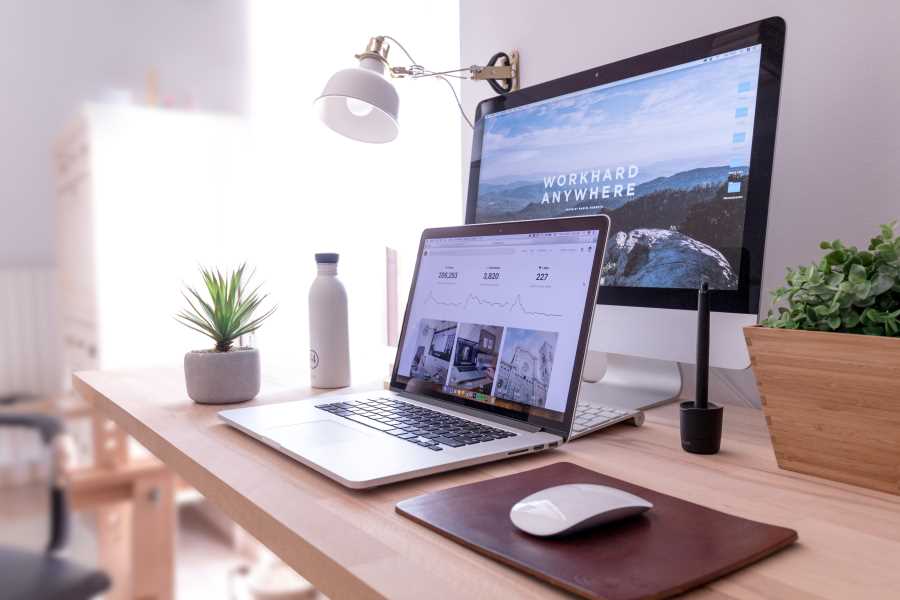
Controlling where and when you work is a key priority for the large majority of workers, our survey sent to more than 12,000 employees in Australia found.
In a year where organisations are struggling to find and hold on to high quality talent due to skill shortages, three out of four employees say they would leave their current role for a role that offers them more flexibility.
Would you change jobs for more flexible working conditions?
This is despite the fact that only 9 per cent of respondents say they are currently working in the office five days a week. When asked how many days they would like to work from home, the most popular response selected was three days a week at 28 per cent. This was followed by four days a week (20 per cent) and two days a week (19 per cent).
This research indicates that for the majority of the professional workforce, the hybrid model of work has truly cemented itself as the most popular working pattern. Only 25 per cent of workers say they would like to be fully remote and only three per cent would like to be permanently based in the office.
In what represents an increasing trend over the previous few years, flexible working arrangements were ranked as the number one motivator for employees. Remuneration was ranked second, followed by company culture.
For a lot of employers this means a rethink of the kinds of packages they offer candidates as well as how they present their offers. Flexibility is no longer a nice to have, it’s an integral part of an employer’s offering.
What do these findings mean for employers?
Separate research from the National Bureau of Economic Research in the US found Australians work an average of two days a week at home. This is higher than the average of 1.5 days across 27 countries.
We conducted our survey to get a sense of how employees are feeling after a sustained period of hybrid working and also a greater understanding of what the right balance may be. While it seems employers are no closer to finding a one size fits all approach, it does appear that giving employees the ability to control the way they work is an essential offering for employees.
It is also clear that flexible working isn’t something that is going to go away anytime soon. Employees have taken to it and technology should only make it more and more possible.
For this reason it’s unlikely we’re seeing flexible working in its final state, just this week research has been released from a trial of 4-day work weeks in the UK. At the halfway point of the six-month trial, 86 per cent of organisations say they plan to continue with the four-day work week once the trial is complete and 95 per cent of organisations say productivity had remained the same or improved. In a week where many of us only worked three or four days, it’s potentially an interesting point to consider how your own productivity stacked up against previous weeks.
So where can employers go from here? There were two key findings in the comments employees left in our survey.
Flexibility isn’t just setting a hybrid working pattern
Flexibility isn’t just having the flexibility to work from home a set amount of days. It’s about employees being able to choose when they work from home and adapt to what’s best for them on a particular day or week.
Here are some of the things that people shared:
“Target working from home is more of a range, three-four days. But I prefer this not to be fixed. Flexible working should really be driven by the role and requirements day to day.”
“Flexible working allows people to have the option of working where they can perform the best. It allows the opportunity to work from home or in an environment that allows you to focus more and ultimately do a better job. It also helps balance the many stresses in life and avoid wasting time sitting in traffic.”
“I fortunately work in an organisation where there is a hybrid flexible working option. If this were not the case, I would certainly consider moving to another organisation to be able to have this flexibility. COVID-19 has forever changed the way we think about work. Whilst there are clear benefits from some time face to face (collaboration and sense of belonging), there are even greater benefits of being flexible (employee engagement, productivity and the calibre of candidates one can recruit as not limited by geography).”
I’ve spoken about this in previous articles, adaptability is now a key attribute for both employers and employees. In order to be able to adapt quickly and effectively, then communication lines and expectations need to be very clear. This brings us nicely to our next finding.
Trust and clear communication are key
At the heart of flexible working is trust. Flexible working arrangements aren’t just convenient for employees, they also show employees that they’re trusted.
One respondent to the survey summed it up nicely by saying, “I would be hesitant if a workplace doesn’t offer flexible working arrangements as it would send a message that there are trust issues.”
Another said, “Great to work at an organisation that doesn’t clock watch, but understands the peaks and troughs – including where a boss says ‘You have been working really hard lately, so take Monday off!’”
One of the first signals to a potential candidate about the level of trust in the organisation is the flexible working policy, or lack of it. For organisations, being clear in terms of what the policy is will help to ensure both parties can make more informed choices.
So while employers continue to adapt to the changing expectations of employees, focusing on making sure employees feel trusted and understand expectations is essential. Increasing staff retention and attracting the best possible candidates into your business in this difficult, candidate-short market is the obvious benefit to adopting this strategy.
–
If you would like a full copy of the report or learn about the organisations that are creating working arrangements that suit both employees and employers, please contact Phil Davis, Managing Director, Q Consulting Group on 0404 803 609 or at phil.davis@qconsultinggroup.com.au.
